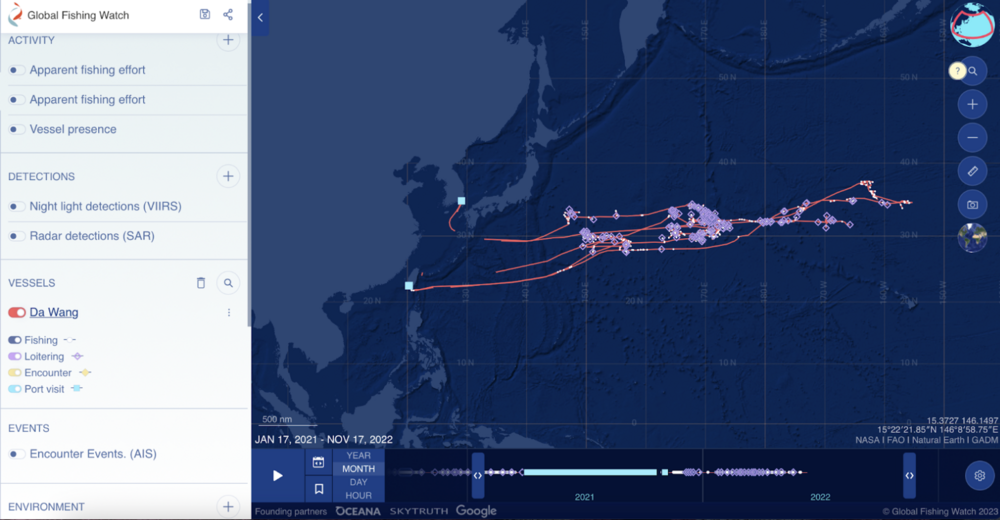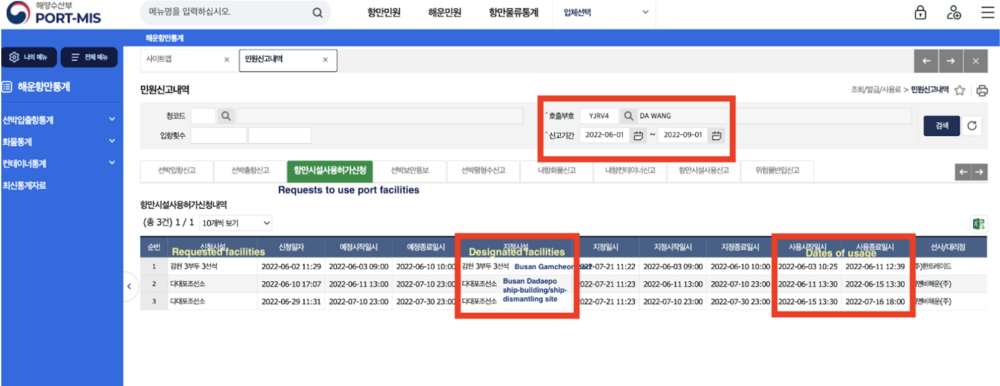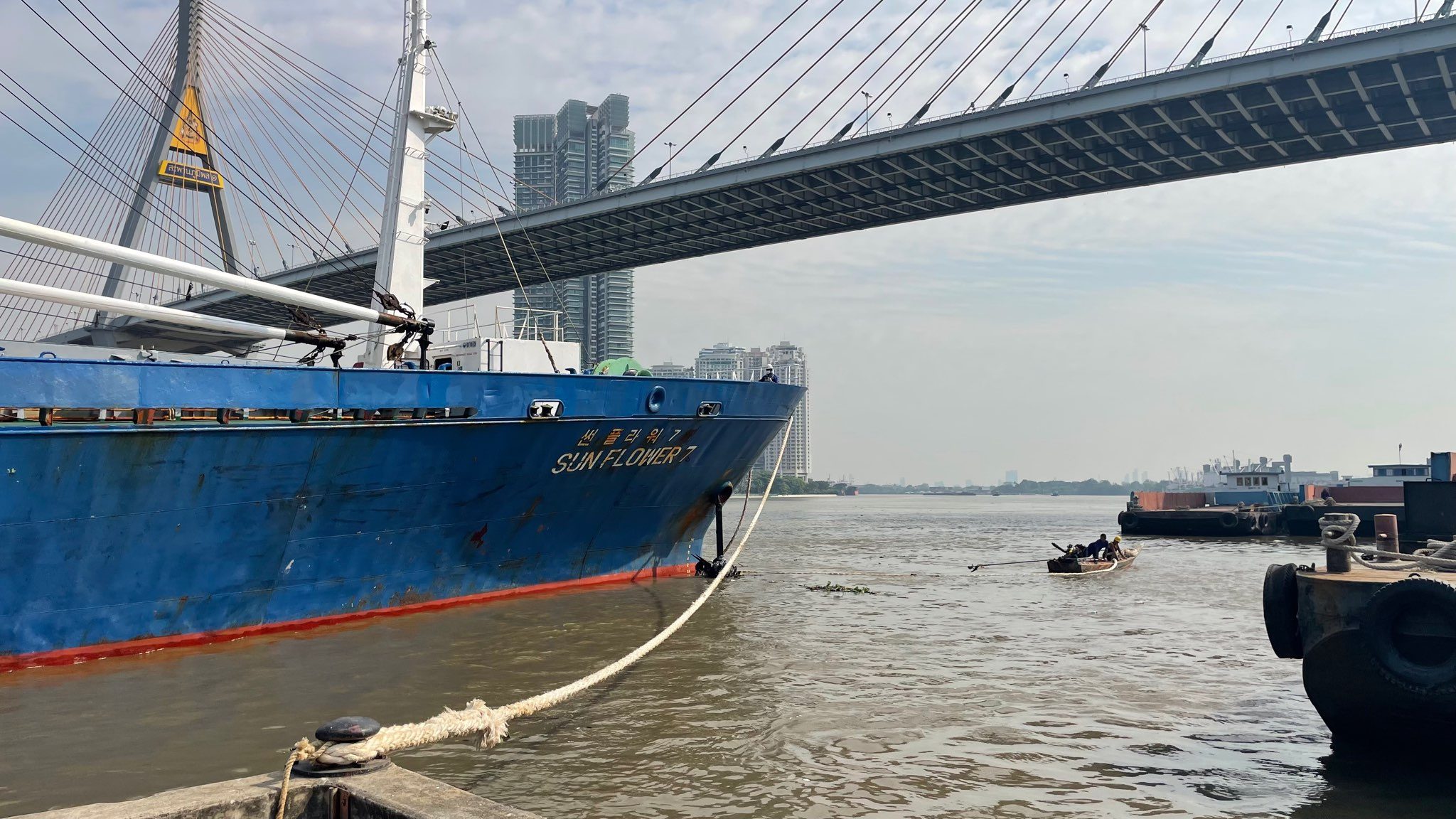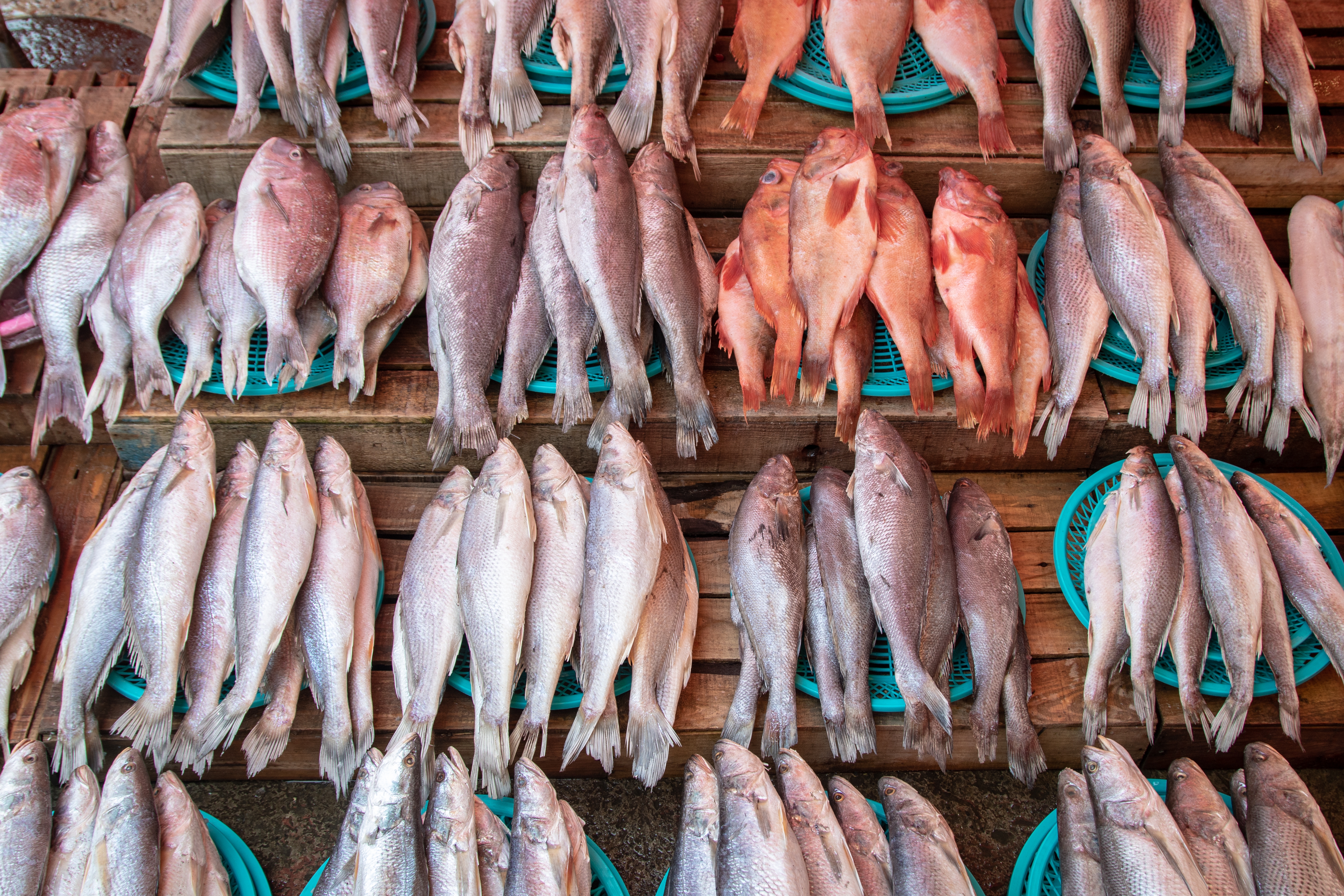
Products linked to forced labour may have entered the international market via Busan: new analysis
A vessel linked to forced labour has been allowed to unload its cargo in Busan, meaning products tainted with human rights abuses could have entered international markets, according to an investigation by the Environmental Justice Foundation (EJF). The NGO says this is a result of a severe lack of capacity for port inspection and awareness of human rights abuses, and calls for the Korean government to immediately track the whereabouts of the seafood and strengthen inspections to prevent future similar incidents.
In August 2021, The US Custom and Border Protection (CBP) issued a withhold release order (WRO) for the Taiwanese-owned and Vanuatu-flagged vessel DA WANG, due to reasonable indications of the use of forced labour on board the vessel. After this announcement, the Taiwanese government took steps to deny the vessel entry to Taiwan, along with all others owned by the same company. It also removed the owner’s licence to operate foreign vessels in January 2022, the day after the US government further reported it had found evidence of all 11 of the International Labour Organization’s forced labour indicators on the vessel .
However, despite this timely action by the Taiwanese and American authorities, EJF has found that the vessel was subsequently allowed to enter South Korea twice (28 October 2021 and 3 June 2022) without any inspection. The vessel then moved to Dadaepo on 10 June 2022 to be scrapped, according to EJF’s intelligence and supported by the Korean port-MIS record. Concerningly, the seafood on the vessel might have entered the global market through the hub port of Busan.

AIS tracks between January 2021 and November 2022 show that DA WANG continued fishing at sea.
From a field investigation and satellite data, EJF found the vessel continued to fish in the Pacific immediately after CBP’s announcement until its registration licence was removed by the Taiwanese government in January 2022. There is no obvious at-sea trans-shipment on AIS data and the vessel only visited the port in Kaohsiung once for inspection and twice in Busan.

DA WANG’s port use records shows its port-in on 28 October 2021 and port-out on 28 October 2021. Source: Korea National PORT-MIS

DA WANG’s port use records show its port-in on 3 June 2022 before DA WANG was scrapped between June and July 2022. Source: Korea National PORT-MIS
DA WANG was able to enter the hub port of Busan because Korea does not have an adequate legal framework nor the necessary human and technical capabilities to meet responsibilities to monitor forced labour as a port state, say EJF. Korea ratified the FAO Port Statement Measure Agreement (PSMA) in 2016. However, this does not cover labour inspections. EJF’s policy briefing on the PSMA points out that a lack of risk-based inspection systems, capacity and resources and legal gaps are the key loopholes that have previously allowed 145 high-risk consignments to enter Korea between 2021 and 2022.
Korea is not only a major port state but also an important global tuna supplier. This lack of traceability therefore means the whereabouts of seafood from DA WANG is currently unknown, and might have entered the international market. EJF calls for the Korean government to immediately investigate the case and improve transparency and traceability to avoid the same free movement of tainted seafood from happening again.
Steve Trent, CEO and Founder of EJF, said: “Busan is one of the most important ports in the world and it needs to increase its capacity to monitor and detect high risk vessels effectively and efficiently. A vessel with as dark a record as DA WANG should not be able to offload its tainted seafood into Korean and international markets. It is alarming that the vessel was not even subjected to inspection in Busan. A comprehensive risk-based system should be in place to help the authorities to quickly identify vessels that are associated with illegal fishing and human rights abuses. This should include swift information sharing as both the US and Korea are PSMA signatories and Taiwan has already incorporated it into its national acts. Korea has all the financial resources and technological capacity to address this issue better, and I urge the Korean government to take decisive action now.”
ENDS
Notes to editors
EJF works internationally to inform policy and drive systemic, durable reforms to protect our environment and defend human rights. We investigate and expose abuses and support environmental defenders, Indigenous peoples, communities and independent journalists on the frontlines of environmental injustice. Our campaigns aim to secure peaceful, equitable and sustainable futures.
Our investigators, researchers, filmmakers and campaigners work with grassroots partners and environmental defenders across the globe. Our work to secure environmental justice aims to protect our global climate, ocean, forests and wildlife and defend basic human rights.
For more information, please contact media@ejfoundation.org.
SIGN UP FOR OUR EMAILS AND STAY UP TO DATE WITH EJF

